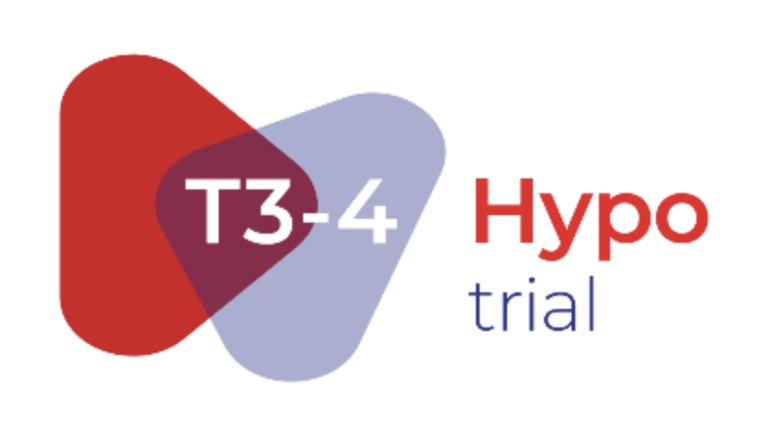Do view the original which includes a map and various links.
16 to 20 months is so much more sensible than the few weeks so many previous studies have been based on.
T3-4-Hypo trial
Updated on 25 January 2024
CALL – study T3 / T4 combination therapy
In most patients, an too slow or unactive thyroid (hypothyroidism) can be well treated with thyroid hormone (levothyroxine). However, about 15% of patients keep several complaints, even though blood levels are normal. These complaints are especially fatigue, but also concentration and memory problems, depressive complaints and gastrointestinal, muscle and joint complaints, leading to a reduced quality of life.
The target
The aim of the study is to check whether adding the thyroid hormone T3 to the T4 (levothyroxine) therapy can reduce the symptoms of fatigue and any other complaints.
Registration for participation in the study can now take place in:
Erasmus MC in Rotterdam
Maasstad Hospital in Rotterdam
Rijnstate Hospital in Arnhem
Franciscus Gasthuis & Vlietland in Rotterdam and Schiedam
Van Weel-Bethesda Hospital in Dirksland
Admiraal de Ruyter Hospital in Goes
Amsterdam UMC, location AMC
UMC in Groningen
Radboudumc in Nijmegen
Albert Schweitzer Hospital Dordrecht
Maxima MC in Eindhoven and Veldhoven Nieuw
Zuyderland MC in Heerlen and Sittard-LedNieuw
UMC Utrecht New
On the study website you can see the hospitals that will connect in the course of 2024 (srolling)..
In addition, it is being investigated whether there are certain properties that determine whether or not someone responds to this therapy. So that in the future it may be better to predict who will or will not benefit from this T3 / T4 combination therapy.
For Thyroid Organization Netherlands (SON), the start of the T3 -4-Hypo trial, as the research is officially called, is an important moment. This study is at the top of our knowledge agenda. This is a list of desired studies compiled based on the wishes of thyroid patients themselves and in collaboration with researcher doctors. SON has worked enthusiastically on the preparation of this study and will also be closely involved in the coming years and pay attention to the progress and – ultimately – the results of the research.
For whom
Patients 18 years of age or older with hypothyroidism (low-fed thyroid gland), who have been treated with levothyroxine with normal blood levels for at least 3 months.
In addition, there must be serious fatigue complaints with a major negative impact on daily life during the last 6 months, possibly in combination with other complaints.
Hypothyroidism may not exist from birth/first years of life, or be caused by a pituitary disorder, thyroid surgery, treatment with radioactive iodine or medications.
There are more rules for participation. The study website T3-4-Hypo trial also contains further information for both patients and doctors. Based on that information, your doctor can estimate whether you are eligible for this examination.
Study design
A total of 600 patients will participate throughout the Netherlands. The examination takes 16 to 20 months for the patient and consists of two parts:
The transition to the same T4 drug (levothyroxine *) (part A)
The research comparing T4T4/T3 combination therapy with T4 /placebo therapy (part B).
There are two groups. In both groups, patients receive levothyroxinelevothyroxine*. However, one group is added T3 in addition to the levothyroxine. In addition to levothyroxine, the other group receives a placebo, a ‘nePMed icijn’. Both the doctor and the patient do not know who had what. This is the most reliable way to investigate the efficacy of treatment.
* Because 7 different T4 preparations are available in the Netherlands with different properties, it was decided to give all patients the same T4 medication first. This drug was developed specifically for this study. It is the only way to get reliable study results and make a comparison between T3T3/T4 combination therapy and T4 /placebo.
Participating hospitals
On the T3-4 Hypo trial website you will find an overview of participating hospitals ( scrolling down on the study website).
Do you want to participate in the research?
If you want to participate in the study, contact your treating doctor. You can bring this flyer (see picture). Your doctor can then read the information intended for doctors on the study website T3-4-Hypo trial to see if you are indeed eligible.
** Automatic ** translation from Dutch - lots of questionable results:

